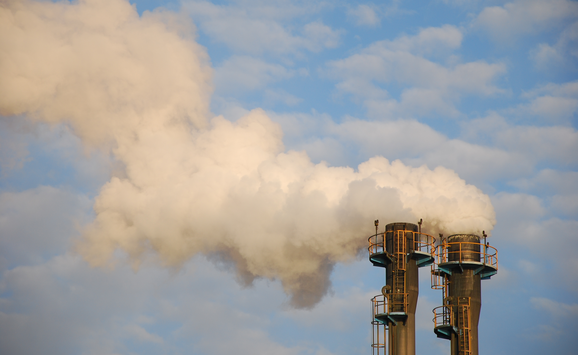Commissioned by the President's Council on Environmental Quality (CEQ), the Department of Energy, the Department of Agriculture, and the Environmental Protection Agency, RFF conducted a comprehensive national survey of public opinion last year regarding variety of environmental and energy issues.
The RFF survey was conducted with the assistance of the Roper Organization and Cantril Research, Inc. Roper and Cantril interviewed 1,576 adults representing a cross section of the American population. Most of the interviews took place between January 26 and February 9 of 1980.
Study director Robert Cameron Mitchell, a senior fellow at RFF, also analyzed a large number of previous surveys in an effort to identify trends in public opinion on environmental issues over the past ten years.
Among the RFF survey findings are:
- Although 81 percent of those surveyed said they are worried "a great deal" about inflation, only 13 percent chose the option which stated "pollution control requirements and standards have gone too far; it already costs more than it is worth." Thirty-four percent believed we should "now concentrate on holding down costs," and 42 percent declared, "Continuing improvements must be made regardless of cost."
- One in five chose the statement, "We must relax environmental standards in order to achieve economic growth." A plurality (39 percent) said we could achieve both goals at the same time, while 27 percent were willing to accept slower growth to protect the environment.
- A solid majority (62 percent) said they were sympathetic with the environmental movement; and an even larger majority (73 percent) said the term environmentalist applied to them at least "somewhat."
- Two out of three people said they were worried "a great deal" about the disposal of hazardous chemical wastes, a level of concern higher than that expressed in the early 1970s about air and water pollution.
- Seventy percent would "want to move to another place or to actively protest" if a government-approved and -inspected disposal site for hazardous waste chemicals were located within 20 miles of their home. An almost identical percentage felt that way about a new nuclear power plant, whereas only 34 percent said they would oppose a new coal-fired power plant at that distance from their home.
- While most polls show majorities willing to sacrifice some environmental quality to ensure an adequate energy supply, the RFF survey and other polls found a strong preference for environmentally benign sources like solar energy and conservation. Solar was chosen by 61 percent as the energy source which the nation should "concentrate on most" over the next twenty years, and nuclear energy was least preferred.
- Eighty-one percent believed "Technology will find a way of solving the problem of shortages and natural resources." Fewer than one out of three respondents agreed with the statement that "Future scientific research is more likely to cause problems than to find solutions to our problems."
In his analysis of trends since 1970, Mitchell found that "the intensity of public concern about environmental problems has lessened somewhat since its peak on Earth Day 1970." Other problems—in particular, national defense and inflation—are more urgent now. "Nevertheless," Mitchell states, "at the beginning of the 1980s the answers to a broad range of probing questions posing sharp trade offs show continued strong support for national efforts to protect environmental quality."





